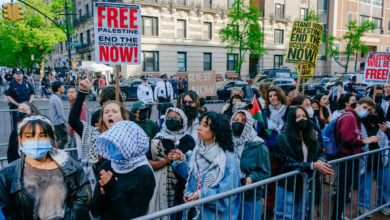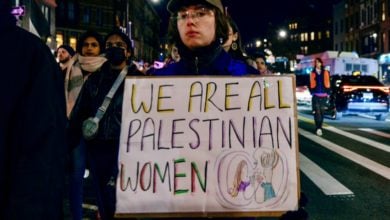Photo: Forces of the United Congolese Party with the flag of the former Zaire, ruled by pro-west dicatator Joseph-Desire Mobutu
On Sunday May 19, Republican Guard forces in the Gombe district of the capital city Kinshasha circumvented failed attacks on the residence of Vital Kamerhe, Deputy Prime Minister of Economy and head of the Union for the Congeles Nation (UNC) by some 20 soldiers identifying themselves as FARDC (Armed Forces of the Democratic Republic of Congo). After the failed attack, the ‘FARDC’ soldiers fled inside the “Palais de la Nation” (the country’s presidential palace) in an alleged coup attempt which was quickly quelled by security forces in just a few hours. Among those arrested for the attempted coup, three were identified as U.S. citizens.
The rapidly suppressed ‘coup attempt’ by the group was headed by Christian Malanga, a U.S. citizen and founder of the United Congolese Party headquartered in Washington D.C. Malanga was killed by security forces in the exchange of fire.
“New Zaire” and the right-wing, pro-west United Congolese Party
A video released by the armed men who stormed Palais de la Nation depicts them sporting the old Zaire flag, while chanting “New Zaire!” Zaire refers to the former name of the country under the rule of Joseph-Desire Mobutu, from 1971 until 1997. Mobutu is infamous for the complete privatization and plundering of the nation’s resources, ballooning inflation, massive currency devaluations, total collapse of infrastructure, extreme embezzlement and nepotism. He helped depose and assassinate Patrice Lumumba – anti-colonial, anti-imperialist revolutionary and democratically elected Prime Minister of the DRC – at the behest of Belgium, the United States and other western powers in 1961.
Christian Malanga has espoused building a New Zaire in the region characterized by further privatization and accumulation of Congolese wealth by foreign investors. The United Congolese Party itself is a pro-western, right-wing organization. Headed by Malanga, UCP has lobbied in Washington D.C. to congressmen such as Peter King, far-right former chair of the House Committee on Homeland Security.
Despite this backdrop, Christian Malanga’s “New Zaire movement in exile” is entirely self-proclaimed and rather unknown to the broader Congolese diaspora.
DRC’s ruling elite and opposition
In December 2023, Congo’s President Felix Tshisikedi won reelection with more than 70% of the vote. Many opposition candidates and civil society groups contested the results stating the elections were mired with sever logistical issues. Protests called on by opposition groups were met with violent crackdowns by Congolese authorities after the Tshisikedi government banned anti-government protests. Since then, Tshisikedi has delayed installing a government by five months. It wasn’t until after Sunday’s attacks that the National Assembly in the Democratic Republic of Congo elected Vital Kamerhe as speaker in a delayed vote. Kamerhe in 2020 faced a sentence of 20 years in prison for embezzling $48 million but was acquitted in 2022.
The tempestuous political landscape of Congo raises many questions with regard to the viability of this attempted “coup” which was swiftly stopped in its tracks. Although it was headed by Congolese-American Christian Malanga, some observers speculate that the coup may have been a false flag attack. Sunday’s upheaval was defined by an ill-conceived execution, lack of clear objectives, and the government’s rapid response. There are internal divisions among the ruling coalition alongside regional and international interests seeking to control the country’s resources. Therefore, it is possible that motivations for this bold move include a bid for political power, the influence of foreign interests seeking to exploit Congo’s natural resources, and an attempt to disrupt legitimate opposition movements to maintain the current government’s control. Many activists fighting for the sovereignty of Congo see this situation as a move by Tshisikedi to further consolidate political power and stave off any opposition.
As the situation unfolds, it is important to examine the motivations behind Malanga’s foiled coup attempt and the historical context of foreign interference and manipulation of Congo’s internal political affairs. This event highlights the precarious nature of Congo’s political environment. For those engaged in anti-imperialist and internationalist movements, it is crucial to support the movements and organizations defending genuine change, stability, and complete sovereignty in the Democratic Republic of Congo.
Popular protests inside the DRC led to changes such as the United Nations peacekeeping mission – MONUSCO – to withdraw approximately 2,000 UN soldiers from South Kivu. Popular discontent with Tshisikedi’s government also propelled Dr. Denis Mukwege, a Nobel Peace Prize winner, into the presidential fray in 2023. Independent candidates such as Mukwege were met with a high degree of popularity among citizens because it was representative of the movement of poor, working people, and peasants as a whole. The fight against neocolonialism paired with strong organizational footing can provide hope for a long term struggle to free the Congo from the shackles of exploitation and plunder.





